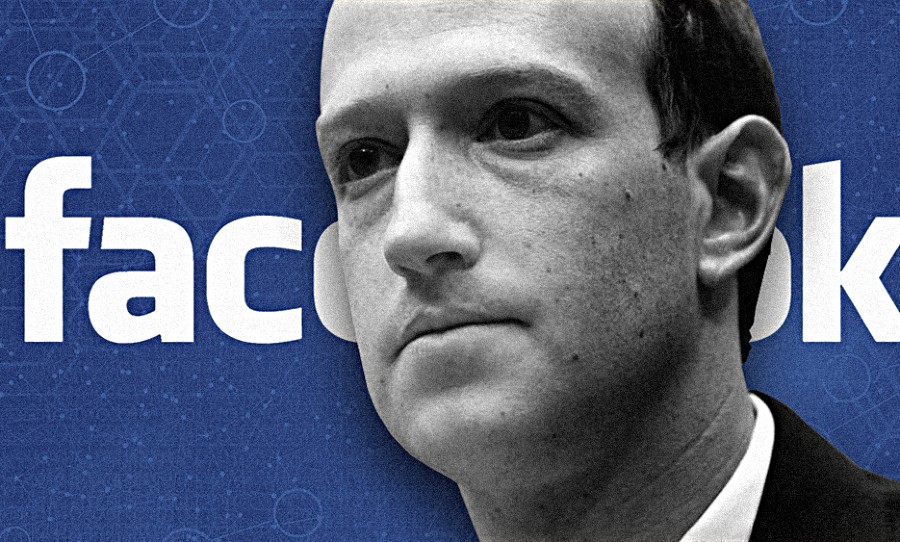The American Federal Trade Commission and forty-eight attorney generals filed a lawsuit against the social media giant for unlawful monopolisation.
According to the lawsuit filed on Wednesday, Facebook has used illegal monopoly power and an “unlawful scheme” to neutralise competition, invade personal privacy, and undermine rival companies.
“For nearly a decade, Facebook has used its dominance and monopoly power to crush smaller rivals and snuff out competition, all at the expense of everyday users,” New York Attorney General Letitia James said at a press conference announcing the suit.

“By using its vast troves of data and money, Facebook has squashed or hindered what the company perceived as potential threats.”
James said the company’s “unlawful scheme” has limited choices for consumers and “degraded privacy protections for millions of Americans.”
The suit requests that the courts permanently stop Facebook from continuing its alleged illegal behaviour, including preventing major acquisitions by the giant and potentially forcing the company to divest from some of its major assets like Instagram and Whatsapp.
The general attorneys have requested the courts require Facebook to seek approval for any future acquisitions valued at $10 million and above.
Facebook’s market and regulatory invincibility is put to the test facing a 40 state anti-trust lawsuit along with FTC. Could be forced to sell off Instagram and WhatsApp. https://t.co/Xc6rz2lOtl
— David Carroll 🗳 (@profcarroll) December 9, 2020
“Facebook’s actions to entrench and maintain its monopoly deny consumers the benefits of competition,” said Ian Conner, director of the FTC’s Bureau of Competition, in a statement. “Our aim is to roll back Facebook’s anticompetitive conduct and restore competition so that innovation and free competition can thrive.”
In a statement, Facebook’s vice president and general counsel, Jennifer Newstead, condemned the lawsuit, claiming the allegations were “revisionist history.”
“Instagram and WhatsApp became the incredible products they are today because Facebook invested billions of dollars, and years of innovation and expertise, to develop new features and better experiences for the millions who enjoy those products,” she said.
“The most important fact in this case, which the Commission does not mention in its 53-page complaint, is that it cleared these acquisitions years ago. The government now wants a do-over, sending a chilling warning to American business that no sale is ever final.”
Facebook has previously defended the acquisitions after the House Antitrust Subcommittee released a report in October which found that, along with other companies, the giant was abusing its power.
During the hearing, the subcommittee released email evidence from the company’s CEO and founder Mark Zuckerberg, saying he bought Instagram to remove a competitor.
“These businesses are nascent but the networks are established, the brands are already meaningful, and if they grow to a large scale they could be very disruptive to us,” Zuckerberg wrote to David Ebersman, the company’s then-CFO, in 2012.
Almost an hour after the initial email, Zuck backtracked, attempting to cover his intentions. “I didn’t mean to imply that we’d be buying them to prevent them from competing with us in any way,” he wrote in the follow-up.
This will be most far-reaching anti-trust issue of our time – on a par with the long-ago rulings that broke up Bell Telephone’s monopoly into the so-called “Baby-Bells” that are today: ATT, Sprint, Verizon & laid foundation for broadband wars.
https://t.co/X3pUh53BZq— Shanlon Wu (@shanlonwu) December 9, 2020
On Wednesday, the news of the antitrust lawsuit was spread quietly by employees posting articles to Facebook’s internal message board. According to inside sources, the social media giant did not make an official announcement but briefly mentioned to Twitter that it was “reviewing the complaints & will have more to say soon.”
Company discussion of the news inside Facebook was almost nil, with only a few comments posted to the message board. The silence could have much to do with an October directive from Zuckerberg, warning employees that they could face legal action if they discussed antitrust issues.
“Given that, you know, anything that any of you say internally is, of course, available to be subpoenaed or used in any of these investigations, I just think we should make sure that people aren’t just, you know, mouthing off about this and saying things that may reflect inaccurate data, or generally just are kind of incomplete,” he said in a company-wide meeting that was previously reported by BuzzFeed News.
“You shouldn’t be emailing about these things and you shouldn’t really be discussing this in non-privileged forums across the company.”
While America has some very questionable ethics for – let’s face it – almost everything, what the US does do well is protect healthy market competition.



